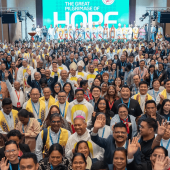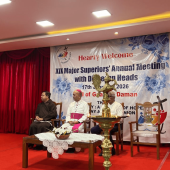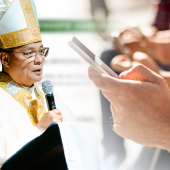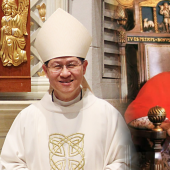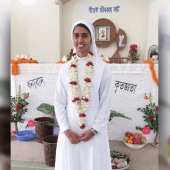Filippino Bishop tells Asia’s Church Leaders: Synodality Is Not a Passing Fad
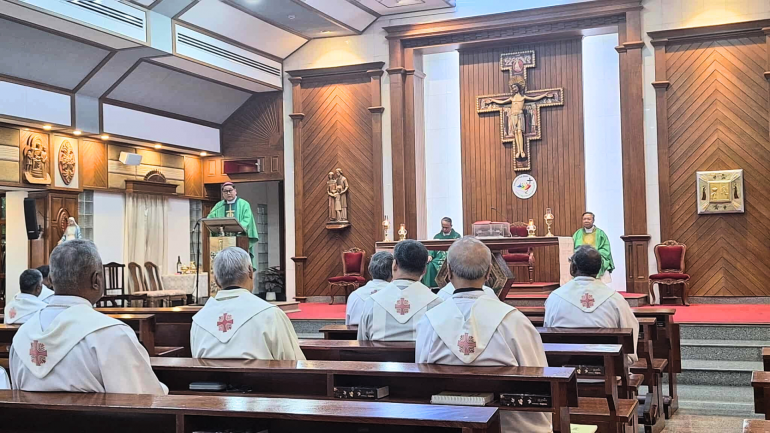
Bishop Mylo Hubert Vergara of Pasig, Philippines, has called on Church leaders across Asia to remain faithful to the synodal journey, reminding them that synodality must not be reduced to a mere slogan or short-lived program.
Bishop Vergara also serves as the vice president of the Catholic Bishops' Conference of the Philippines.
Delivering the homily at the closing Mass of the Asian bishops’ seminar on synodality held at the Baan Phu Waan Pastoral Training Center in Sampran, near Bangkok, Bishop Vergara appealed for a deeper commitment to the synodal way of life.
“We must not waste this gift and process of being a synodal Church received from Pope Francis. We do not want synodality to become a passing fad,” said Vergara, who also serves as vice president of the Catholic Bishops’ Conference of the Philippines (CBCP).
The four-day gathering, organized by the Federation of Asian Bishops’ Conferences (FABC), brought together bishops, cardinals, and Church leaders from across Asia to reflect on synodality as a constitutive dimension of the Church.
From Process to Implementation
The synodal journey, launched in 2021 under the late Pope Francis, passed through diocesan, national, continental, and universal stages, culminating in the 16th Ordinary General Assembly of the Synod of Bishops in Rome in 2024. Its final document affirmed synodality as essential to the Church’s life and mission.
The Church is now in the implementation stage, with a roadmap extending until 2028, when a Vatican Ecclesial Assembly will evaluate progress. Bishop Vergara stressed that bishops and local Churches are now challenged to translate the synod’s vision into concrete reforms and pastoral initiatives.
Citing the Philippine Church’s National Synodal Implementation Framework, he emphasized four movements to sustain the synodal journey:
-
Tinig-Tawag – listening to the Spirit and the marginalized
-
Tawid-Tanaw – moving from selfishness to communal conversion
-
Tapak-Tindig – standing for truth and accountability
-
Tipan – renewing the covenant with God and one another
A Fourfold “Multilogue”
Bishop Vergara also reminded Asian bishops that stewardship of synodality involves a “fourfold multilogue”: dialogue with culture, with other religions, with the poor, and with creation. This approach, he said, reflects Asia’s diverse and pluralistic context, where Christians are often a minority called to build bridges of solidarity.
Quoting Pope Leo XIV, who affirmed synodality as a “style and attitude” fostering communion and participation, he contrasted this openness with King Herod’s fearful anxiety in the Gospel. Instead, he invited the Church in Asia to embrace a “holy anxiety”, an openness to encounter Christ in mission and service.
Inspired by the Magi
“Asian bishops must walk the synodal path with fidelity, inspired by the Magi, who chose the way of Jesus Christ in service and mission,” Bishop Vergara said.
The seminar, part of FABC’s ongoing accompaniment of the universal Church’s synodal process, included workshops, reflections, and testimonies from different countries. Organizers expressed hope that participants would return to their dioceses equipped with practical strategies to strengthen listening, participation, and shared mission.
Radio Veritas Asia (RVA), a media platform of the Catholic Church, aims to share Christ. RVA started in 1969 as a continental Catholic radio station to serve Asian countries in their respective local language, thus earning the tag “the Voice of Asian Christianity.” Responding to the emerging context, RVA embraced media platforms to connect with the global Asian audience via its 21 language websites and various social media platforms.









